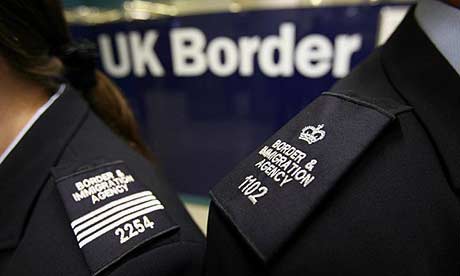 Image via Wikipedia
Image via Wikipedia
Source:
Jamaica ObserverBy Diane Abbott MP
Jamaican society's stance on homosexuality continues to get bad press abroad. Most recently the New York Times ran an article on Jamaica entitled "
Gays Live and Die in Fear in Jamaica". It featured a victim of violence called Sherman. The article said, "Even now, about three years after a near-fatal gay bashing, Sherman gets jittery at dusk. On bad days, his blood quickens, his eyes dart and he seeks refuge indoors.
"A group of men kicked him and slashed him with knives for being a 'batty boy' - a slang term for gay men - after he left a party before dawn in October 2006. They sliced his throat, torso and back, hissed anti-gay epithets, and left him for dead on a Kingston corner."
The article went on: "Sherman, meanwhile, is simply trying to move on with his life. But he said he will always remember how, after his attack, patrolmen roughly lifted his bloodied body out of their squad car when a man admonished them for aiding a 'batty boy'. A woman shamed them into driving him to a hospital; they stuffed him in the car's trunk."
The article also quotes Jamaican poet Staceyann Chinn - now living openly as a lesbian in Brooklyn, New York - who described how she was raped in Jamaica because of her sexual preference. The article quoted Yvonne McCalla Sobers as well who said, ''My thought is there are far more men having sex with men in this country than you would ever think is happening.'' There was the obligatory discussion of the homophobic lyrics of Jamaican popular music. And Dr Trevor Tulloch of St Andrew's Hospital ascribed the soaring level of prostate cancer in Jamaica to men being scared of the digital rectal examinations needed to diagnose it, he is quoted as saying, "because it is a homophobic society, there's such a fear of the sexual implications of having the exam that men won't seek out help''.
Because attitudes to homosexuality in Jamaica are so hostile, it is not sufficiently understood how damaging its stand on the issue is outside the country. Just a few months ago a boycott of Jamaican tourism and products like rum and Red Stripe beer was launched in a gay bar in New York. The organisers said, "Most people view Jamaica as a laid-back tourist destination. This easy-going image is betrayed by the immense brutality against gay, lesbian, bisexual and transgender (GLBT) individuals. Indeed, public officials, media, entertainers, and much of the population seem to celebrate homophobia, as if it is a national pastime. The anti-gay sentiments have become a frightening national psychosis that urgently needs to be addressed and treated. A boycott is an unfortunate measure that must be taken to influence Jamaican officials, so they will stop allowing murder and violence against GLBT people."
The boycott has so far been unsuccessful. But a country dependent on tourism cannot afford to ignore the fact that attitudes to homosexuality in other countries have moved on. There are probably as many people in Britain who are privately judgemental about homosexuals and lesbians as there are in Jamaica. But the British take the view that what people do in the bedroom is their affair. So gay marriage is legal and leading politicians in both the government and opposition parties have publicly acknowledged their sexual orientation and married their partners. It is difficult to imagine such a state of affairs coming about in Jamaica any time soon.
But Jamaica could do more to stress that despite the blood-curdling lyrics of much of its popular music, it is a more tolerant society than people think. And violence against gay people should be universally condemned.
 Ed Balls image by Downing Street via Flickr
Ed Balls image by Downing Street via Flickr 



![Reblog this post [with Zemanta]](http://img.zemanta.com/reblog_e.png?x-id=fcb46f8f-79c4-4944-a0d1-fb2b759fb4e0)
.jpg)
![Reblog this post [with Zemanta]](http://img.zemanta.com/reblog_e.png?x-id=9872a4d5-d780-478e-a6a9-f144fb22d702)


![Reblog this post [with Zemanta]](http://img.zemanta.com/reblog_e.png?x-id=8721c0ca-93fc-4fce-9396-e7621c6b319b)





 Join our page
Join our page

